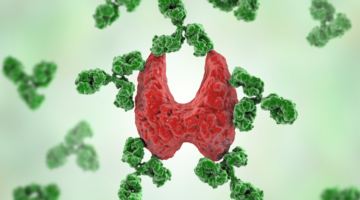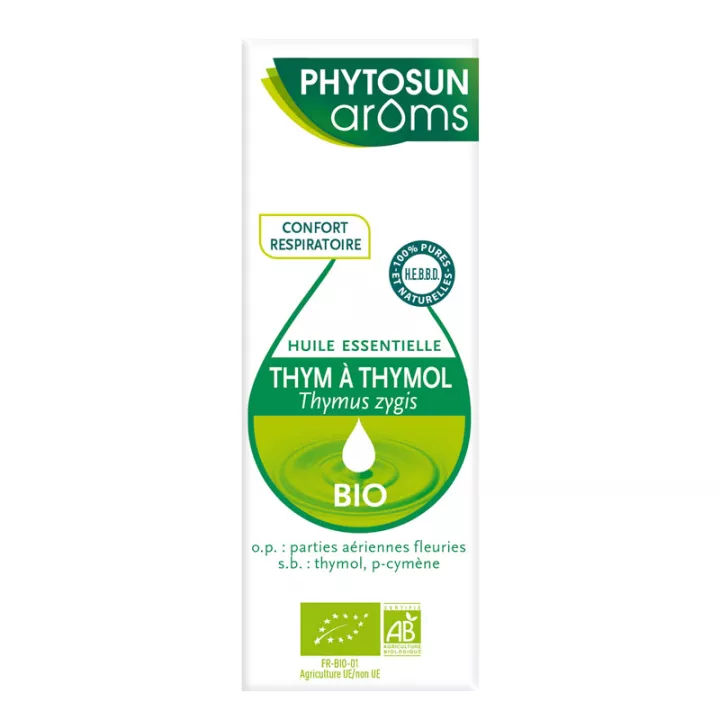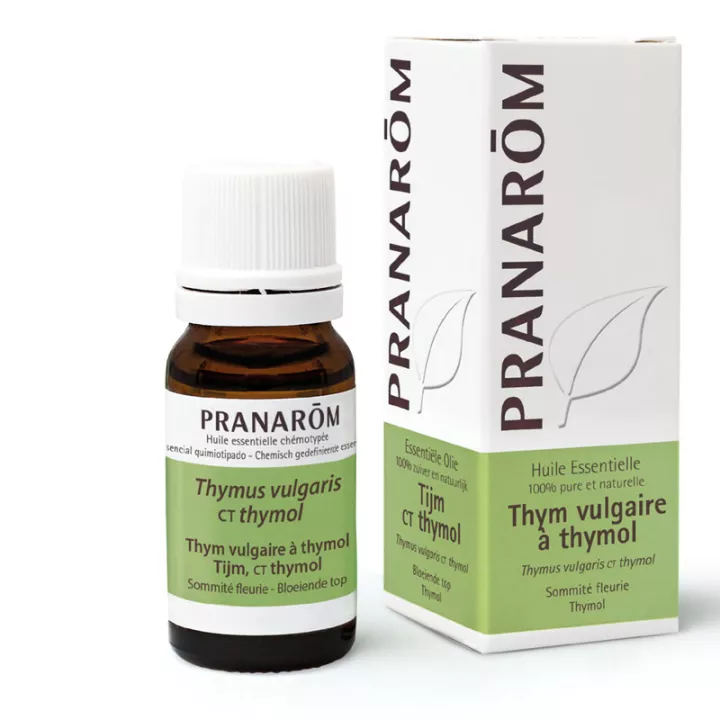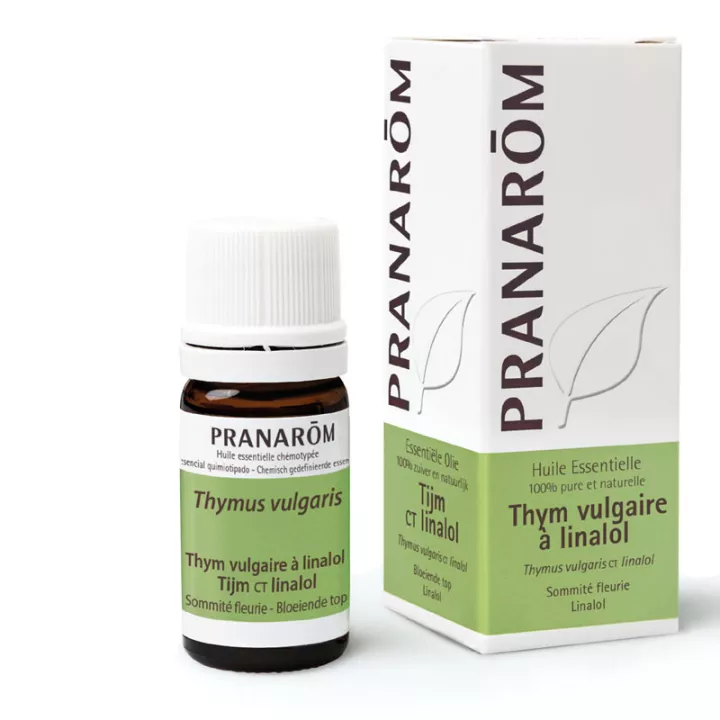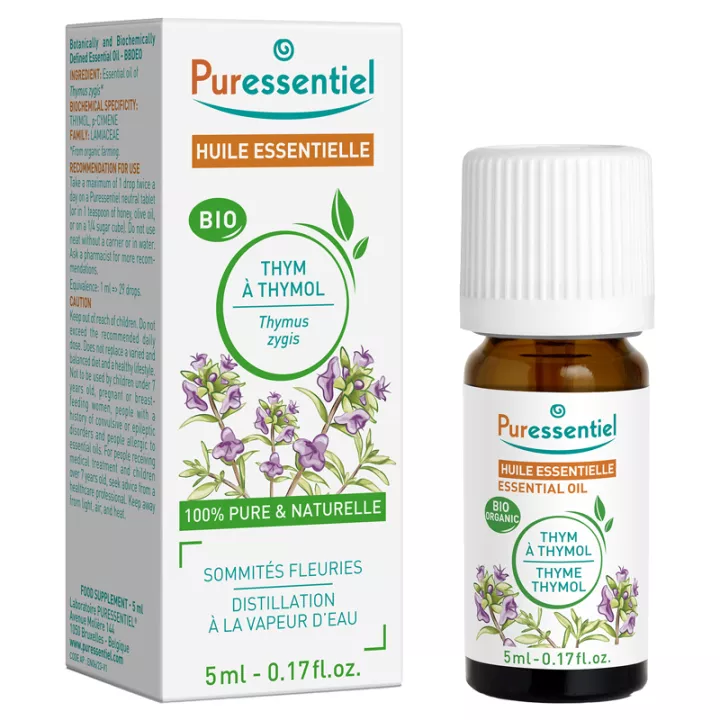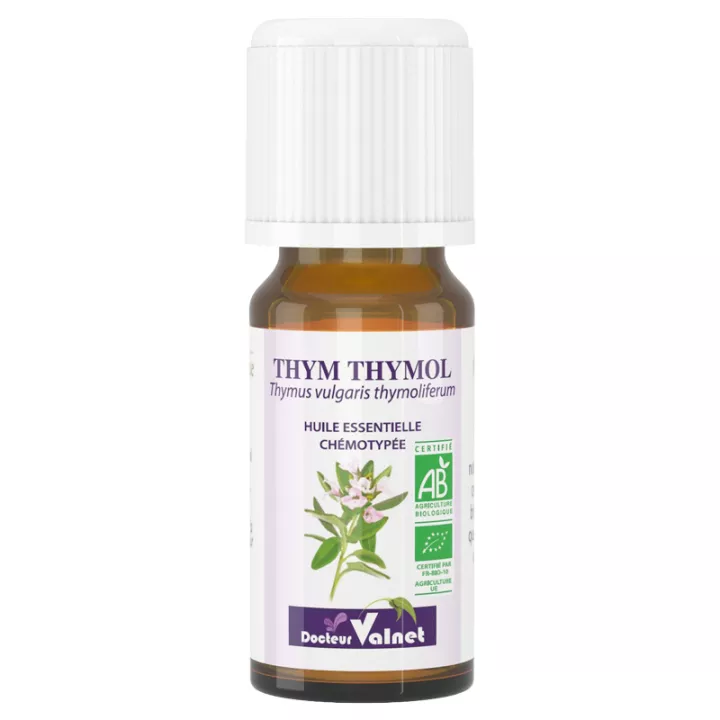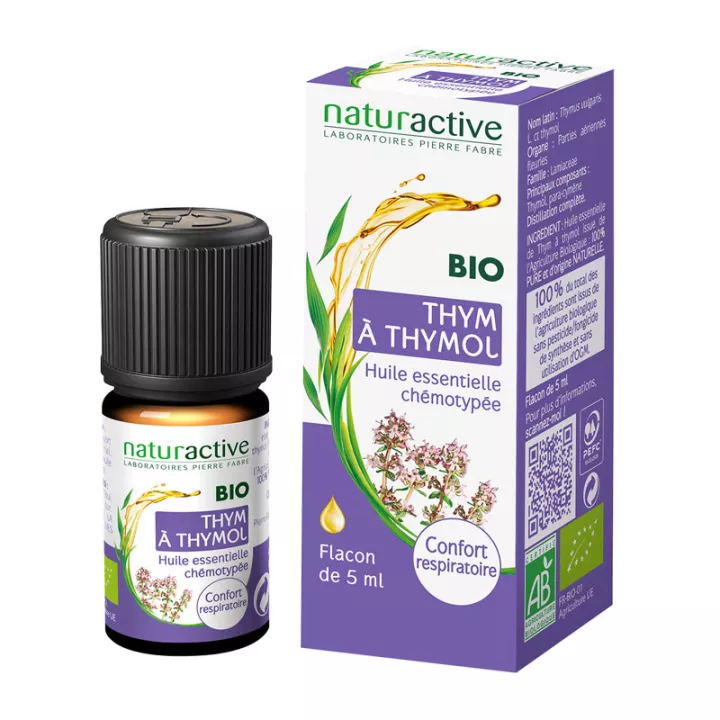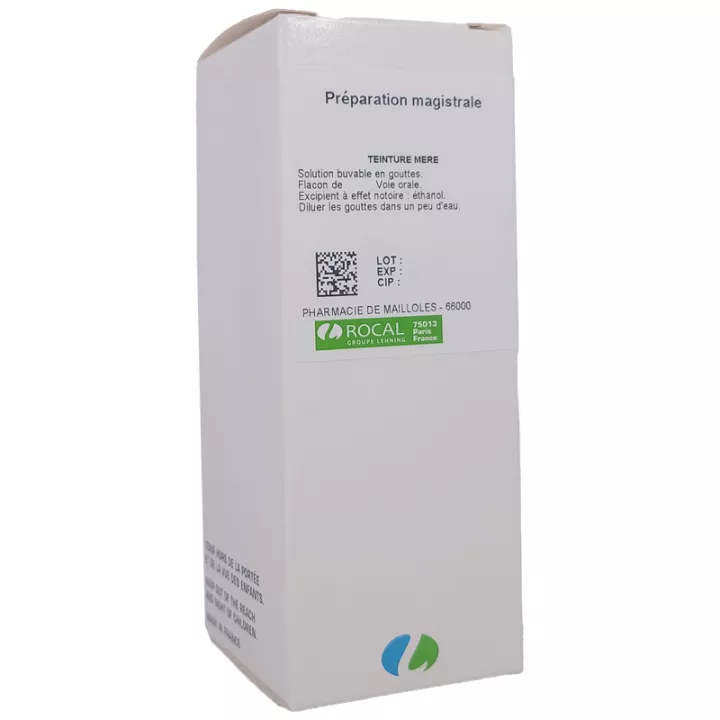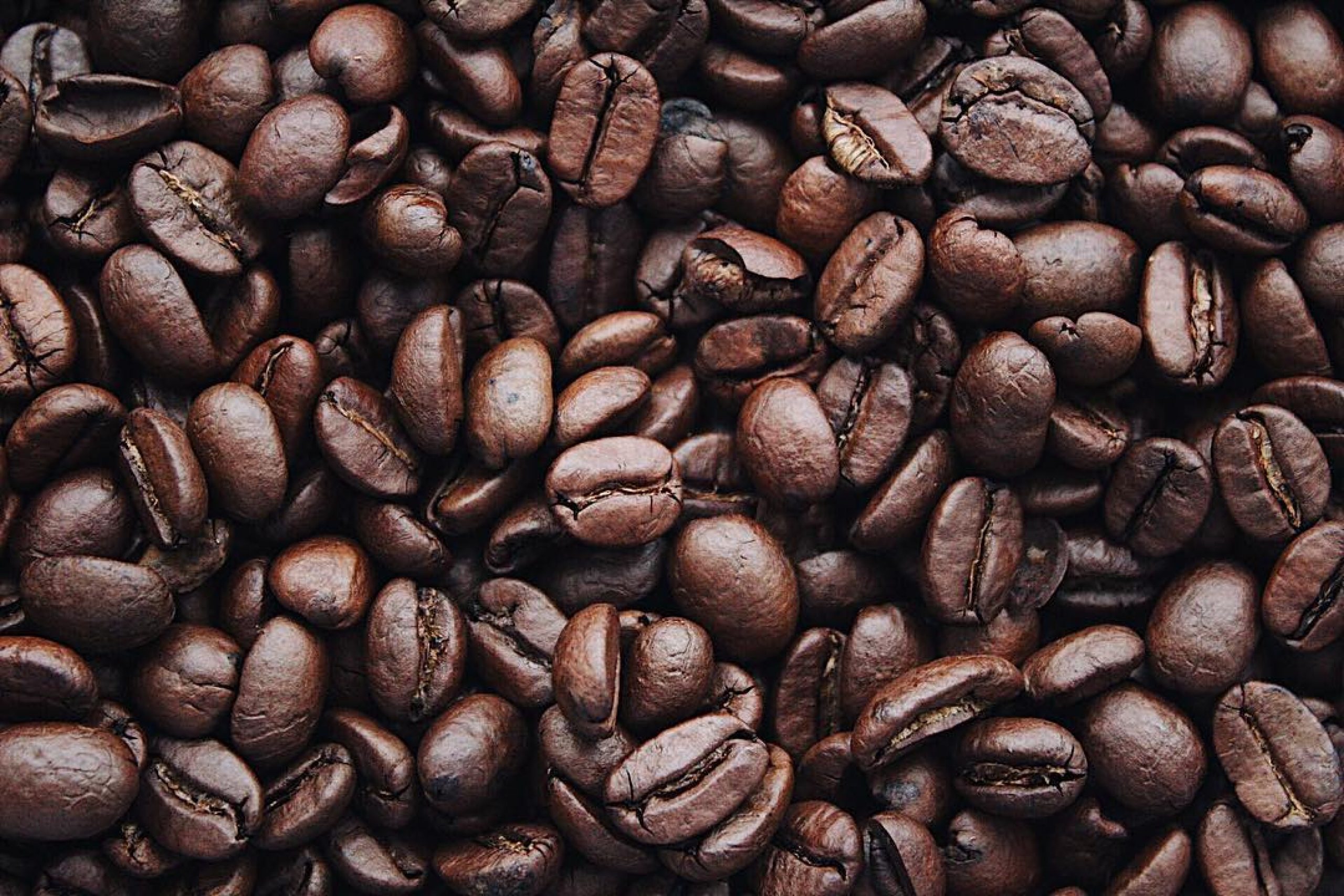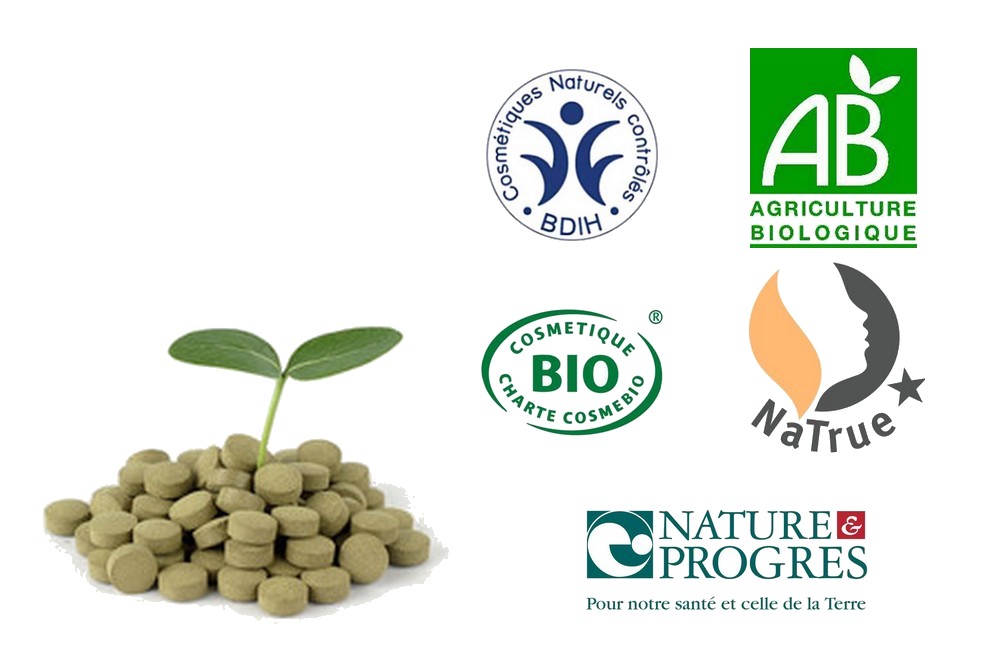What is Phytosun Aroms Thyme Organic Essential Oil used for?
A perennial shrub that can grow up to 30 cm tall. It has small, lanceolate leaves curled at the edges. The stem is woody and the branches are ascending. Flowers are whitish-pink and grouped in dense inflorescences. Thymus vulgaris ct thymol is one of six thyme chemotypes identified by Passet, Granger and Vernet et al. It is found in southern France (mainly Provence) on limestone soils.
Thyme essential oil is renowned for its powerful anti-infectious action, and remains indispensable during winter. Thyme thymol essential oil has very broad-spectrum anti-infectious properties. It is antiseptic, antifungal, antifungal and antiparasitic. It is an anti-viral, immunostimulant and general toning essential oil.
Thyme essential oil is used to combat exhaustion. Its powerful anti-infectious action makes it highly effective in preventing winter ailments . Thyme essential oil is effective for recurrent infections such as chronic bronchitis.
- Powerful general antiseptic
- Broad-spectrum anti-infective, antiviral, antibacterial, fungicide
- Immune stimulant
- Antiparasitic
- Digestive, carminative, aperitive, cholagogue
- Stimulant, tonic and invigorating
The high concentration of Thymol gives this essential oil powerful anti-infectious properties, effective against winter pathologies such as sinusitis, angina and bronchitis, as well as urinary and intestinal infections.
Thyme à Thymol essential oil is perfect for staying in shape over winter and protecting against numerous infections.
- Respiratory: affections of the pulmonary system (bronchitis, pharyngitis, tuberculosis, coughs...) and asthma.
- Intestinal infections: dysentery, infectious diarrhea, amoebiasis
- Nervous and cerebral fatigue, convalescence
- Excretory: urinary tract infections (cystitis, urethritis)
- Intestinal infections: dysentery, infectious diarrhea, amoebiasis
- Skin: mycoses and infectious dermatoses
- Sciatica, lumbago, osteoarthritis, rheumatism
Depending on the biotope (altitude, exposure, etc.), Thymus vulgaris produces essences with very different scents and biochemical compositions. Smell several plants in a field of wild Thyme, and you'll see the extraordinary olfactory variety of this species.Thymol specificity is the best-known and most common. It grows in the sunny garrigue, from the seashore to 300 m altitude. It is the most widely cultivated. Its scent is warm and powerful, its flavor pungent and burning. Thyme has six biochemical specificities with different therapeutic properties.
The aromatherapy laboratory Pranarom also offers you a set of calming essential oils, at the best price in our online pharmacy.
How to use this essential oil
Powerful antimicrobial and anti-parasitic action on skin such as scabies; dilute thyme essential oil to 20% inblack cumin vegetable oil. Apply to itchy areas 3 times a day for 3 days.
Precautions for use:
- Do not use after 5 p.m. (stimulating essential oil).
- Not recommended in cases of high blood pressure or tachycardia.
- Not recommended for pregnant or breast-feeding women.
- Do not use undiluted (dermocaustic), always dilute.
- Respect prescribed doses
- Do not diffuse
Thyme vulgaris (over 100 species) is an aromatic plant that perfectly illustrates the value of classifying essential oils by chemotype, since depending on where it grows (biotope: altitude, exposure), the climate and many other factors, thyme produces essential oils with different compositions and properties. There are thus 6 biochemical specificities of Thyme with different therapeutic properties.
Thymol thyme is the best-known and most common. It is the most widely cultivated thyme, growing in the sunny garrigue (scrubland), from the seashore to 300 m altitude. Its scent is warm and powerful, its flavor pungent and burning. It is a small plant that flowers between May and June, and its tiny white or pale pink flowers are steam-distilled to obtain the essential oil.
Thyme is also widely used in cooking to flavor dishes.
What is its composition?
Thymus vulgaris ct Thymol
Family: Lamiaceae
Producer organ: Flowering tops
Biochemical characteristics: Thymol, p-cymene
Production method: Complete steam distillation
Origin: France (Provence)
Quality: 100% pure, natural and integral, certified H.E.B.B.D and BIO by ECOCERT
Presentation : 10 mL bottle
